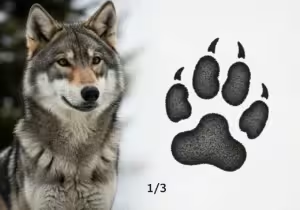
The same holds true for non-mammals, too
She added, “Birds and reptiles also share many nutritional commonalities with mammals – all of these animals need calcium and vitamin D in their diet, for instance – but they have some other physiological and metabolic differences that need to be taken into account (e.g. egg laying, being “cold-blooded” for reptiles)”
Moreover, species isn’t the only factor to consider. Heinze said the right food for your pet will, “[meet] general nutrient requirements for the pet’s species, but also is a good fit for the pet in terms of calories [and] form.”
For instance, some “senior” pets may benefit from foods that have a higher fiber content. Likewise, an animal who is prone to weight gain may need less calorically dense foods to prevent them from developing obesity.
In any case, it’s best to consult your vet to get a more accurate assessment of your pet’s individual dietary needs, and then go from there.















